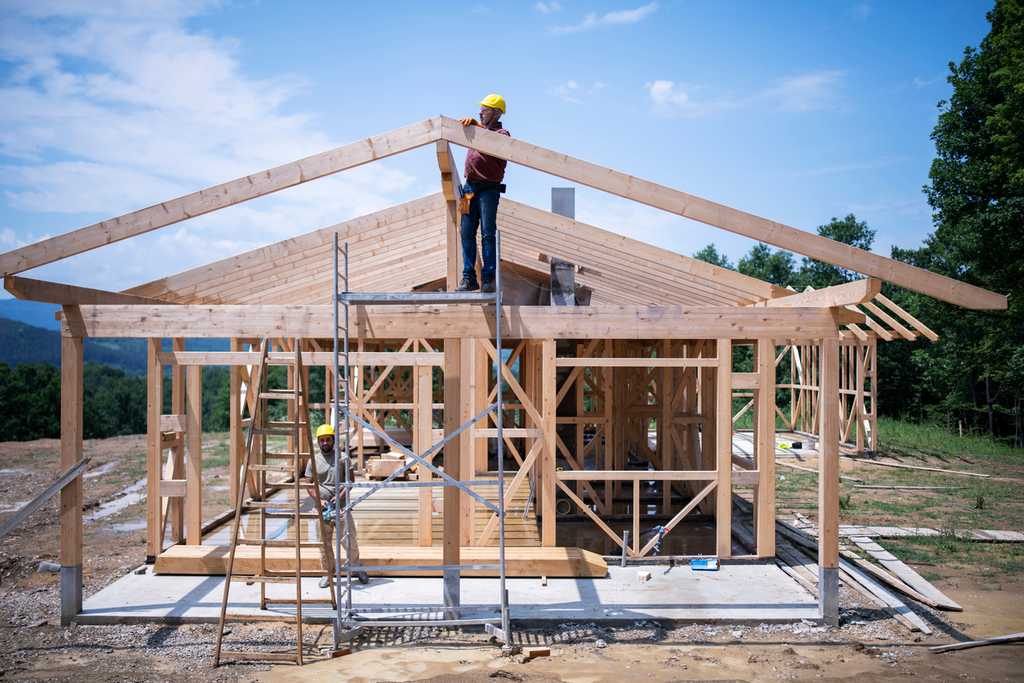Builder’s risk insurance also known as “course of construction insurance” is a special type of insurance that covers buildings that are still under construction. It covers construction projects from acts that could cause damage, such as fire, storms, theft, and vandalism. In general, anyone who has invested in the construction project financially should take out builder’s risk insurance to help protect their investment.
What Does Builder's Risk Insurance Cover?
Builder’s risk insurance covers a variety of incidents that could happen to a building project while it’s under construction. That includes the following:
- Damage from storms, such as lightning or hail damage.
- Damage from fire or an explosion.
- Damage caused by theft or vandalism.
- Damage caused by a natural disaster such as a hurricane or a tornado.
In addition to covering physical damage to the construction project, builder’s risk insurance also covers situations resulting from the damage, such as delays in the construction timeline. A delay to construction can result in the following situations that are typically covered by builder’s risk insurance:
- A loss in sales income.
- A loss in rental income.
- Added loan interest.
- Real estate taxes.
Builder’s Risk Insurance Exclusions
While builder’s risk insurance covers a wide variety of situations, there are certain things that will not be covered. They include the following:
- Theft by an employee.
- Normal wear and tear.
- Damage caused by a poor design.
- Acts of terrorism or war.
- Rust and corrosion.
- Workmanship and materials.
- Planning costs.
- Mechanical malfunctions.
- Engineers.
How Is Builders Risk Insurance Calculated?
When working with an agent or broker on your builder’s risk insurance policy, you will determine what your needs are to help you get the right coverage. From there, you’ll be able to get a quote to see how much the coverage will cost you.
A basic policy will cover buildings under construction as well as materials, supplies, and any equipment on site or in transit to the construction site. But you may also choose to add on extensions to cover things like scaffolding and temporary structures, debris removal and disposal, construction forms, and pollutant cleanup. Adding these or other extensions will be calculated into the cost of your policy.
Generally, there is no one-size-fits-all builder’s risk insurance policy, so it’s important to work with an expert to determine exactly what you need coverage for. Because of this, it’s hard to give an estimate on how much your policy might cost until you’ve worked with your broker and gotten several quotes for coverage.
Who Pays For Builder’s Risk Insurance?
The name “builder’s risk insurance” suggests that the contractor should be the one to pay for coverage, but that isn’t the case. Any investor, developer, or lender can also take out a policy and pay for it to help protect their assets.
Who Needs Builder’s Risk Coverage?
You might not think builder’s risk insurance is something you’ll ever need, but it’s a more common type of insurance than it seems.
Anyone involved financially with a building project should take out builder’s risk coverage. That includes the property owner, the contractor and any subcontractors, the lender, and the architects. If you have a stake in a construction project, this is one kind of insurance you cannot risk skipping out on.
Builder’s risk vs. general liability insurance
In addition to builder’s risk insurance, you should also take out general liability insurance for the duration of the construction project. While you might assume the two insurance types are interchangeable, each one is equally important and you need to have both in order to be fully protected.
While builder’s risk insurance covers the property and equipment itself, general liability insurance also protects you against bodily injury that occurs on the construction site. That means that if someone is injured on the property during construction and sues you, your general liability insurance would take care of the associated expenses.
General liability insurance also covers damage to any commercial space you’re renting; injury or property damage caused by you or one of your employees; and suits against you claiming slander, libel, false advertising, or copyright infringement.
General liability insurance does not cover negligence, errors and omissions, or any lawsuit that’s not related to one of the covered scenarios.
Summary
If you have any kind of financial interest in a construction project, you need to take out a builder’s risk insurance policy. That includes investors, contractors, property owners, architects, lenders, and more. Failure to take out builder’s risk insurance coverage can leave you liable for any costs associated with accidental property damage, theft, or vandalism. Not only does it cover buildings and structures that are in the process of being constructed, but it also covers any associated materials and equipment both on and off the construction site. To find a builder’s risk insurance policy that fits your needs, it’s a good idea to talk to an insurance agent or broker.

